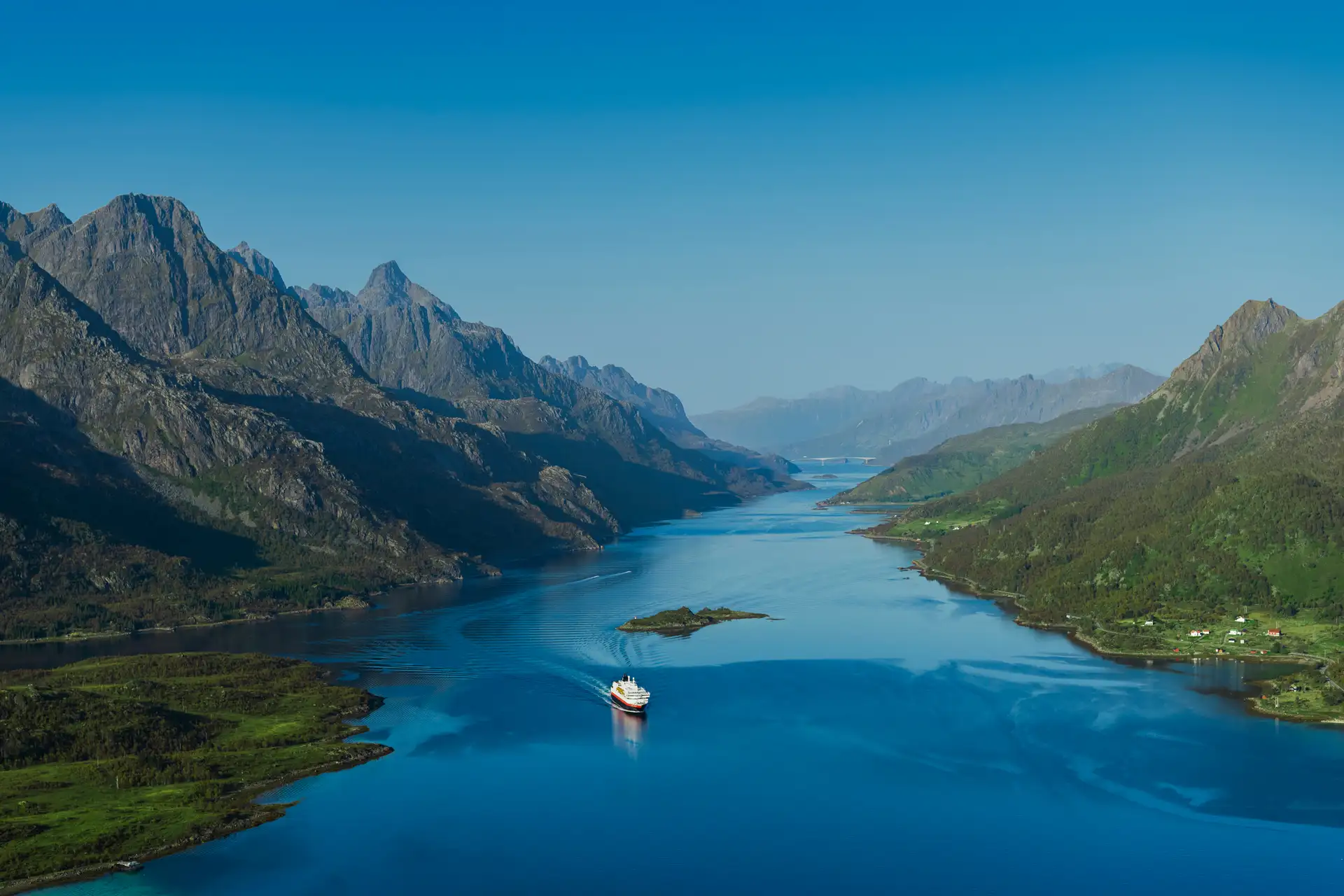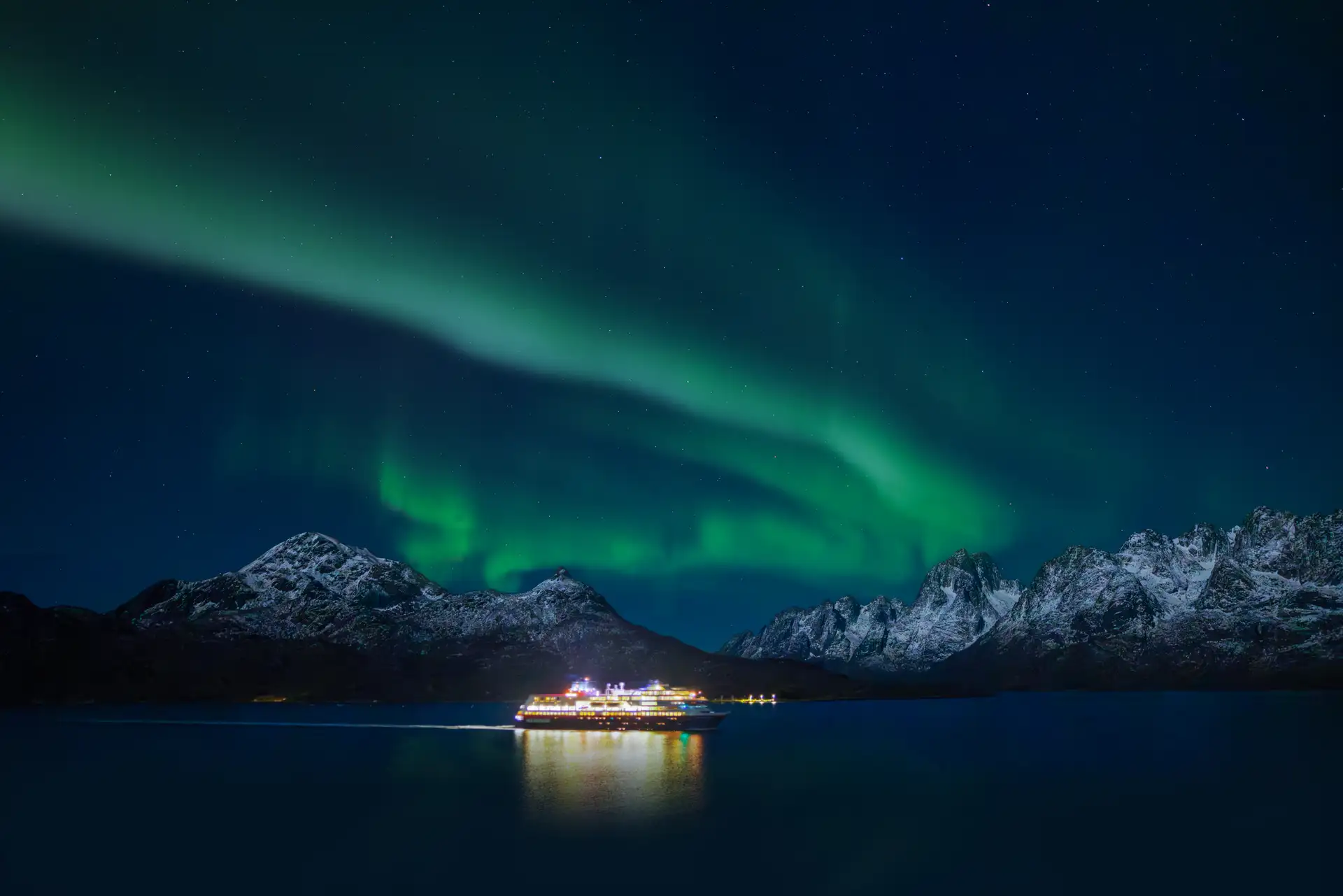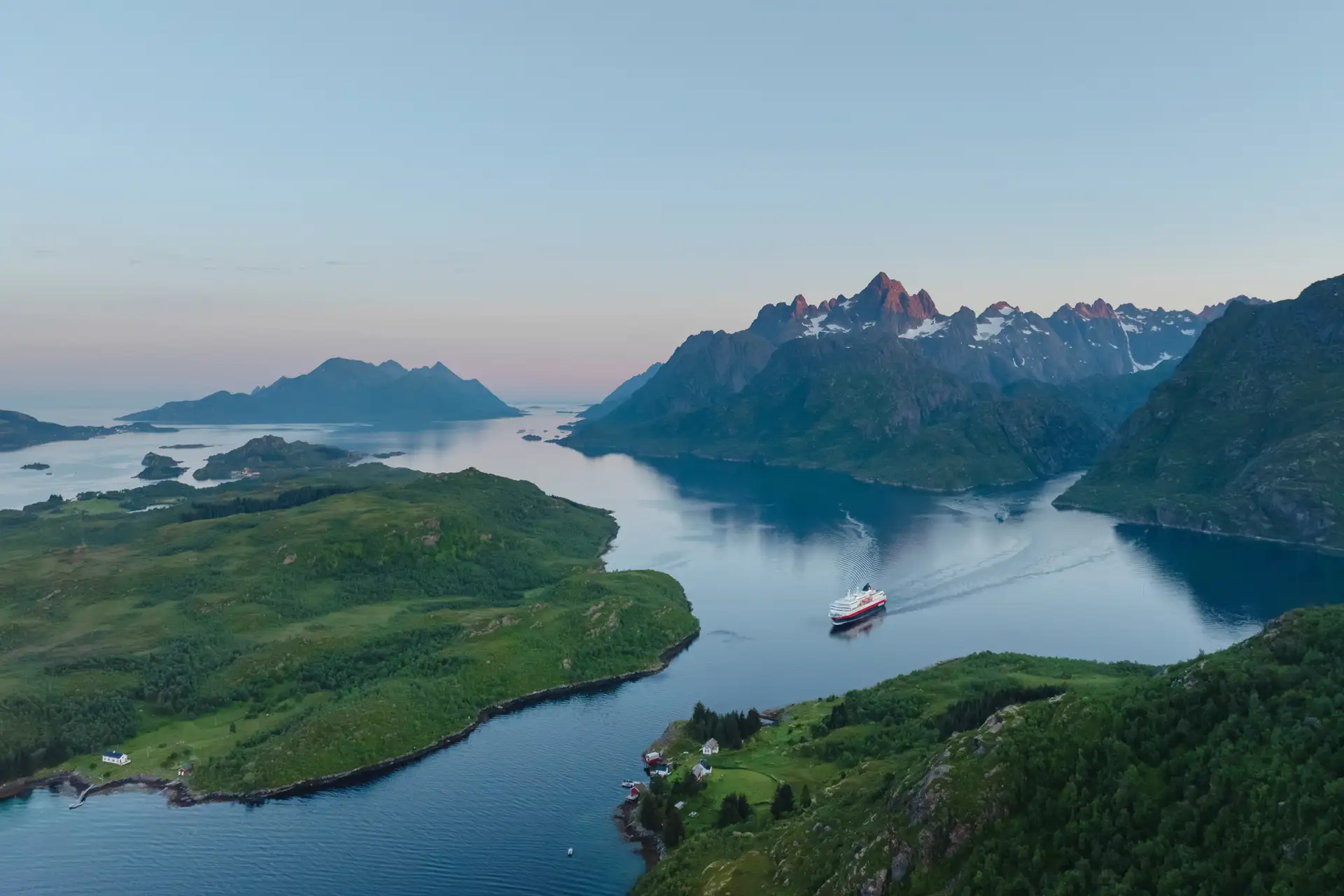Natural wonders along the Norwegian coast
The Norwegian fjords are naturally top of the wishlist for many visitors, but there are plenty of other spectacular natural attractions to keep an eye out for as you explore Norway's coast.

Norway’s coastline is one of the longest in the world, with the length recalculated in 2011 to account for complicated features like islets and fjords. All in all, Norway's coastline has over sixty thousand miles of twisting land – which, as National Geographic points out, would circle the world two and a half times if stretched out.
To truly experience Norway, then, it’s best to explore its coast – its largest and probably its most majestic feature. You could attempt to take on the coastline by car, but there are so many out-of-the-way places (and so few roads that are useful) that it’s best to do as Norwegians have done for centuries and navigate the coastline by ship. And here are just a few of the highlights you can discover during your voyage.
The North Cape
Roughly 1,306 miles from the North Pole and the northernmost point on the European mainland, the North Cape (Nordkapp) is one of Norway’s most popular attractions.
Standing atop the cliff that rises for 1,000 feet above the Arctic Ocean, you'll feel like you're looking out over the top of the world.


Lofoten and Vesterålen
These two archipelagos are Norway at its most beautiful. While Lofoten is a rare wilderness outpost that offers a unique landscape of majestic mountains, deep fjords, and long, surf-swept beaches, the neighboring Vesterålen islands are characterized by contrasts, from white beaches and idyllic farmlands to mountain peaks rising from the sea.
The Helgeland Coast
Spanning across the Arctic Circle between Rørvik and Ørnes, the Helgeland Coast is a region that boasts several fascinating natural attractions. Notable highlights include the UNESCO-listed Vega Islands, the legendary Seven Sisters peaks, and Torghatten, a unique mountain with a 98-mile hole through the middle.


The Sunnmøre Alps
Known as the Sunnmøre Alps, the mountains around Hjørundfjord in Møre and Romsdal country are nothing short of spectacular. There are several challenging but rewarding hiking trails that are suitable for anyone who is moderately fit, or you could choose to combine several summit treks over a few days. The mountains also attract many skiers.
The best time to go skiing in the Sunnmøre Alps is between February and June, while hiking is best during the summer months.
Risøyrenna
At less than 14 miles long, 1,575 ft deep and with a max bottom width of over 3,000 ft, this inland canal was created especially for Hurtigruten’s ships and is inaccessible by larger vessels. It was the result of a long effort to improve access to the port at Risøyhamn.
In his capacity as a member of the Norwegian parliament, Hurtigruten founder Richard With first started work on the channel that opened up his trading post at Risøyhamn for more shipping traffic. When the Hurtigruten coastal line was established, the channel was widened to allow the ships to sail through, and the Risøyrenna opened on June 26, 1922.


Finnkirka
For those sailing between Kjøllefjord and Mehamn, the entrance into Kjøllefjord is a striking moment of contrast, as the dramatic cathedral-shaped sea cliff known as Finnkirka suddenly rises into view. It is a truly commanding sight, borne of the impact of harsh sea on rock over millions of years.
After dark, Finnkirka is lit up, providing an extraordinary experience in the Arctic night. The cliff shows the way north and south, as it has done through the ages – and will in the years to come.
Hestmannen
At over 1,800 feet, this distinctive rock formation on Storseløy is an iconic landmark that, from certain angles, resembles the shadow of a knight mounted on his horse. Legend has it that the knight Hestmannen was chasing Lekamøya at dawn and shot an arrow that pierced the Brønnøy King’s hat – but sunrise arrived at that very instant and turned them all to stone.
It is possible to climb Hestmannen. There are marked routes leading up the mountain, but you will need a rope to reach the very peak.



